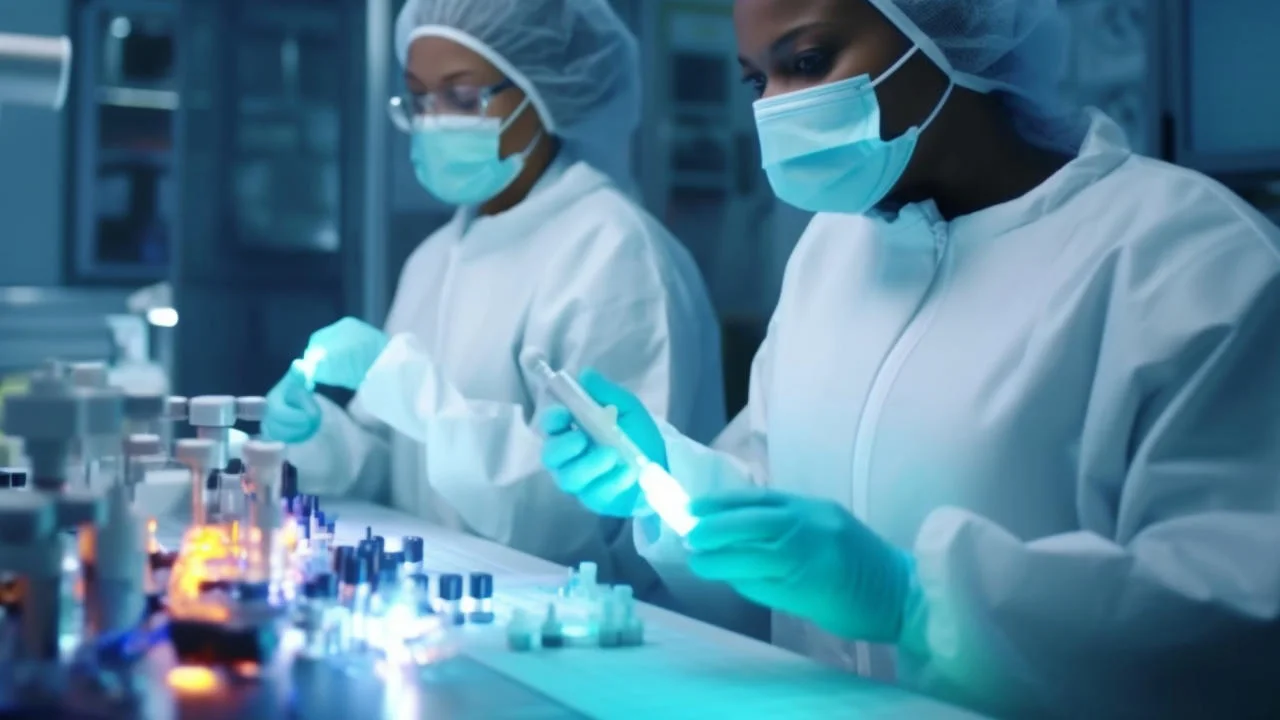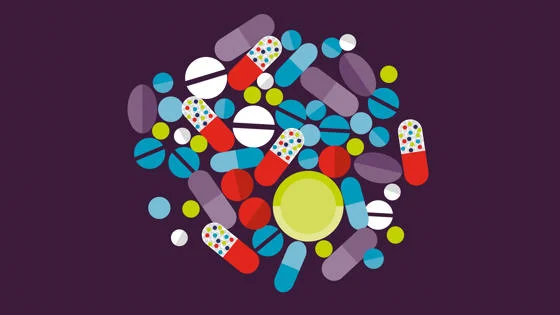What does vaccine technology transfer look like during a global pandemic?

Contents
When COVID-19 started to spread around the world in 2020, a race quickly ensued to develop and produce vaccines on a global scale. Big pharmaceutical firms sought to build global manufacturing networks so they could scale-up supply of their vaccines. The search for international partners generated heightened interest in a process known as firm-to-firm vaccine technology transfer.
Vaccine technology transfer takes place when the manufacturing process used by one firm (the originator) is shared with a partner firm (the recipient) who then helps mass produce the vaccine. Technology transfer involves the sharing of proprietary knowledge and data regarding the vaccine and the various steps involved in its manufacture – material that goes beyond, and is typically harder to access, than what’s disclosed in patents.
Because vaccines are biological rather than synthetic chemical products, they are harder to imitate than ordinary drugs, and they face more complicated regulatory environments. This means that vaccine production at the speed and scale it needed to be done during the pandemic would have been almost impossible for recipient firms to accomplish on their own, independently, without originator companies transferring technology and sharing key manufacturing knowledge.
Researching technology transfer
During the pandemic, Professor Kenneth Shadlen from LSE’s Department of International Development sought to understand how technology transfer for COVID-19 vaccine production looks in practice.
He began by surveying all the partnerships with Latin American producers, producing a paper on this topic. The most important cases, where technology transfer was most extensive, both involved AstraZeneca, which undertook two partnerships in the region (to produce the COVID-19 vaccine that was developed by scientists at Oxford University): one with a manufacturer in Brazil, to supply Brazil; another with partners jointly in Argentina and Mexico, to supply the rest of Latin America and the Caribbean.
Professor Shadlen interviewed managers in Argentina, Brazil, and Mexico (first online, and then, when conditions allowed, in person), to understand the origins of the partnerships, the difficulties they faced, and the steps taken to overcome the challenges.
Not enough was done to encourage vaccine developers to transfer technology widely, [or]…to bring them together with capable recipient firms, and the global response to COVID suffered on account of that.
A successful partnership case study – how Brazil was able to successfully work with AstraZeneca
In the May issue of the journal Research Policy, Professor Shadlen, with colleagues Dr Elize Massard da Fonseca and Dr Helena Achcar, both in Brazil, published an article investigating the Brazilian project in more detail.
The team used the partnership between AstraZeneca and Bio-Manguinhos, a public laboratory linked to Brazil’s Ministry of Health, as a case study to better understand how vaccine transfer worked in practice during the pandemic.
They found that the partnership’s success was down to three key factors: political action, technological capabilities, and regulatory flexibility.
Despite Brazil's response to the COVID-19 pandemic being characterised by former President Jair Bolsonaro's (2019-2022) anti-science approach, the Brazilian federal government quickly adopted technology transfer for local production as its main strategy to access COVID-19 vaccines.
Indeed, as the researchers note, stabilising the supply of essential medicines via local production has a long history in Brazil. Bolsonaro notwithstanding, this continued during the pandemic: Bio-Manguinhos and the Ministry of Health sought technology transfer partnerships, actively "prospecting" potential candidates, and once the AstraZeneca vaccine was identified the government dedicated resources and made the necessary legal changes to allow the partnership to proceed.
The Brazilian laboratory’s existing capabilities as a vaccine producer, experience as a recipient of technology transfer, and the know-how of its staff were also important factors in the success of the partnership, as these allowed Bio-Manguinhos to absorb the technology from AstraZeneca. Support and flexibility from Brazil’s national health regulator proved to be important too.
As of late 2021, roughly 50 per cent of the COVID-19 vaccines used in Brazil came from the partnership between AstraZeneca and Bio-Manguinhos, demonstrating the key role technology transfer can play in a pandemic response.
Compelling this sort of sharing is hard to do…It would be particularly hard to monitor and enforce such a requirement. Only you know what you know.
Globalising international technology transfer
Despite the game-changing role that technology transfer can play, many observers lament the limited extent to which this happened during the pandemic. Professor Shadlen believes one of the key lessons learned about technology transfer during the pandemic is that there simply wasn’t enough of it – particularly outside of Europe and North America. "It would be great if we had more originator firms willing to partner with recipient firms across the globe," he says. "Not enough was done to encourage vaccine developers to transfer technology widely, and not enough was done to bring them together with capable recipient firms, and the global response to COVID suffered on account of that."
There is no requirement for pharmaceutical companies to share their knowledge and technology. During the pandemic, members of the World Trade Organization debated a waiver of Intellectual Property (IP) rights, but according to Professor Shadlen even had that been agreed it would not have compelled technology transfer. There are currently discussions taking place in the World Health Organization (WHO) about a new international pandemic treaty and about revising the International Health Regulations to make this kind of technology sharing for essential pharmaceutical products mandatory.
Yet Professor Shadlen is doubtful that treaty-based requirements of this sort will come to fruition either, or that an international legal approach would be productive. "It’s unlikely the kind of language that makes vaccine technology transfer mandatory will end up in WHO rules given the intense resistance that there is to this," he explains. "And compelling this sort of sharing is hard to do anyway. It would be particularly hard to monitor and enforce such a requirement. Only you know what you know. If you’re obligated to share your know-how and expertise about how best to make your product at scale, including unwritten information on quality control processes that are held by expert technicians, no-one knows if you’re sharing everything or not."
Professor Shadlen believes the way forward is through incentivisation, where companies are rewarded for meeting output targets, targets that can be set knowing that meeting them depends on sharing their technology. After all, he explains, output targets are easier to monitor.
He also recommends putting more resources into national and international initiatives to enable partnerships between originator and recipient firms. "Technology transfer is difficult, but one can’t help but feel that existing capabilities to produce vaccines around the globe were under-utilised," Professor Shadlen says. "The prospecting that occurred in Brazil was remarkable, and, in Latin America at least, appears unique."
Brokering partnerships between willing originators and capable recipients is something Professor Shadlen feels is imperative to improve upon for the future. His next project, "Lessons from the COVID-19 Pandemic for IP Licensing Practices in Vaccine Production", will explore the role licensing of intellectual property played in vaccine production and supply during the pandemic, aiming to identify solutions to the complex questions of how best to scale up vaccine manufacturing and supply while at the same time improving access and affordability.
Professor Ken Shadlen was speaking to Charlotte Kelloway, Media Relations Manager at LSE.
Download a PDF version of this article




